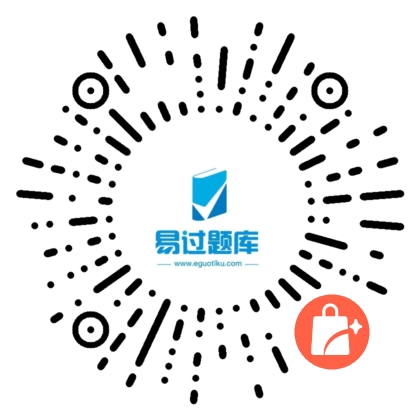
扫码购买正式版题库
- 海量题库
- 全真模拟
- 专项训练
- 预测试题
- 押题密卷
- 错题强化

资料:Procrastination comes in many disguises. We might resolve to tackle a task, but find endless reasons to defer it. We might prioritize things we can readily tick off our to-do list- answering emails, say- while leaving the big, complex stuff untouched for another day. We can look and feel busy. while artfully avoiding the tanks that really matter. And when we look at those rolling, long untouched items at the bottom of our to-do list, we can"t help but feel a little disappointed in ourselves. The problem is our brains are programmed to procrastinate. In general, we all tend to struggle with task that promise future upside in return for efforts we take now. That"s because it"s easier for our brains to process concrete rather than abstract things, and the immediate hassle is very tangible compared with those unknowable, uncertain future benefits. So the short-term effort easily dominates the long-term upside in our minds--an example of something that behavioral scientists call present bias. How can you become less myopic about your elusive tasks? It"s all about rebalancing the cost benefit analysis: make the benefits of action feel bigger, and the costs of action feel smaller. The reward for doing a pestering task needs to feel larger than the immediate pain of tacking it. To make the benefits of action feel bigger and more real: Visualize how great it will be to get it done. Researchers have discovered that people are more likely to save for their future retirement if they"re shown digitally aged photographs of themselves. Why? Because it makes their future self feel more real-making the future benefits of saving also feel more weighty. How can you become less myopic about your elusive tasks?
材料题
资料:Procrastination comes in many disguises. We might resolve to tackle a task, but find endless reasons to defer it. We might prioritize things we can readily tick off our to-do list- answering emails, say- while leaving the big, complex stuff untouched for another day. We can look and feel busy. while artfully avoiding the tanks that really matter. And when we look at those rolling, long untouched items at the bottom of our to-do list, we can"t help but feel a little disappointed in ourselves. The problem is our brains are programmed to procrastinate. In general, we all tend to struggle with task that promise future upside in return for efforts we take now. That"s because it"s easier for our brains to process concrete rather than abstract things, and the immediate hassle is very tangible compared with those unknowable, uncertain future benefits. So the short-term effort easily dominates the long-term upside in our minds--an example of something that behavioral scientists call present bias. How can you become less myopic about your elusive tasks? It"s all about rebalancing the cost benefit analysis: make the benefits of action feel bigger, and the costs of action feel smaller. The reward for doing a pestering task needs to feel larger than the immediate pain of tacking it. To make the benefits of action feel bigger and more real: Visualize how great it will be to get it done. Researchers have discovered that people are more likely to save for their future retirement if they"re shown digitally aged photographs of themselves. Why? Because it makes their future self feel more real-making the future benefits of saving also feel more weighty. How can you become less myopic about your elusive tasks?
AMake the costs of action feel smaller.
BMake the reward larger than the immediate pain of doing it.
CMake the benefits of action feel bigger.
DAll the above.
最新更新

热门题库
- 检验类题库
- 安全工程师题库
- 护理类题库
- 制冷与空调作业题库
- 中式面点师题库
- 安全员(三类人员)题库
- 焊工题库
- 汽车驾驶员题库
- 茶艺师题库
- 钳工题库
- 投资项目管理师题库
- 中式烹调师题库
- 中级安全工程师题库
- 安全员题库
- 公安政法干警题库
- 教师资格题库
- 高级会计题库
- 三支一扶题库
- 煤矿特种作业人员题库
- 国家公务员题库
- Q起重机械作业题库
- 演出经纪人题库
- 注册消防工程师题库
- 会计从业资格考试题库
- 安全管理人员题库
- P气瓶作业题库
- 基金从业资格题库
- 煤矿安全管理人员题库
- 公用设备工程师题库
- 金属非金属矿山安全作业题库
- 电工题库
- 软件水平考试题库
- 建筑特殊工种题库
- 审计师题库
- 岩土工程师题库
- 二级建造师题库
- 煤矿主要负责人题库
- 执业药师题库
- 健康管理师题库
- 焊工作业题库
- 施工员题库
- 设备监理师题库
- 研究生入学题库
- 冶金(有色)生产安全作业题库
- 二级注册建筑师题库
- 报检员题库
- 西式面点师题库
- 高处作业题库
- 卫生类题库
- 美容师题库
- 初级会计职称题库
- 营养师题库
- 成考(专升本)题库
- 注册环保工程师题库
- 试验检测师(含助理)题库
- 期货从业资格题库
- A特种设备安全管理题库
- 资料员题库
- 物业管理师题库
- 理财规划师题库
- 税务师题库
- 一级造价工程师题库
- 统计师题库
- 注册会计师题库
- 事业单位公开招聘题库
- 二级造价工程师题库
- T电梯作业题库
- 环境影响评价工程师题库
- 陕西省-社区专职工作人员招聘题库
- 材料员题库
- 注册结构工程师题库
- 土木工程师(水利水电)题库
- 同等学力申硕题库
- (高级)经济师题库
- D压力管道作业题库
- 招标师题库
- 标准员题库
- 车工题库
- 质量工程师题库
- 高校教师资格证题库
- 消防设施操作员题库
- 保育员题库
- 证劵从业(旧版)题库
- (中级)银行从业资格题库
- 机械员题库
- 土地登记代理人题库
- 一级建造师题库
- 心理咨询师题库
- 劳务员题库
- BIM工程师题库
- 证券投资顾问题库
- (初级)银行从业资格题库
- 证劵从业(新版)题库
- 汽车修理工题库
- 自考(医学)题库
- 注册测绘师题库
- 监管人员执法题库
- 资产评估师题库
- 咨询工程师题库
- 教师招聘题库
- 医师类题库
- 导游资格证题库
- 中级会计职称题库
- 注册城乡规划师题库
- (初级)经济师题库
- 主治类题库
- 理工类题库
- 卫生招聘考试题库
- 成考(高起点)题库
- 质量员题库
- 综合类题库
- 房地产估价师题库
- 电工作业题库
- 证券分析师题库
- 房地产经纪协理题库
- 省公务员-行测题库
- 军队文职人员招聘题库
- 房地产经纪人题库
- 中药学类题库
- 消防工程师题库
- 银行招聘考试题库
- 药学类题库
- 一级注册建筑师题库
- 煤矿班组长题库
- 投资银行业务-保荐代表人题库
- 报关员题库
- 特种设备焊接作业题库
- R压力容器作业题库
- N厂内专用机动车辆作业题库
- 烟花爆竹安全作业题库
- 企业人力资源管理师题库
- 会计从业题库
- 石油天然气安全作业题库
- 初级管理会计师题库
- 道路运输题库
- 注册电气工程师题库
- (中级)经济师题库
- G锅炉作业题库
- 健康管理师题库
- 法律职业资格(原司法考试)题库
- 社会工作者题库
- 危险化学品安全作业题库
- 监理工程师题库
- 主要负责人题库
- 国家电网招聘题库
